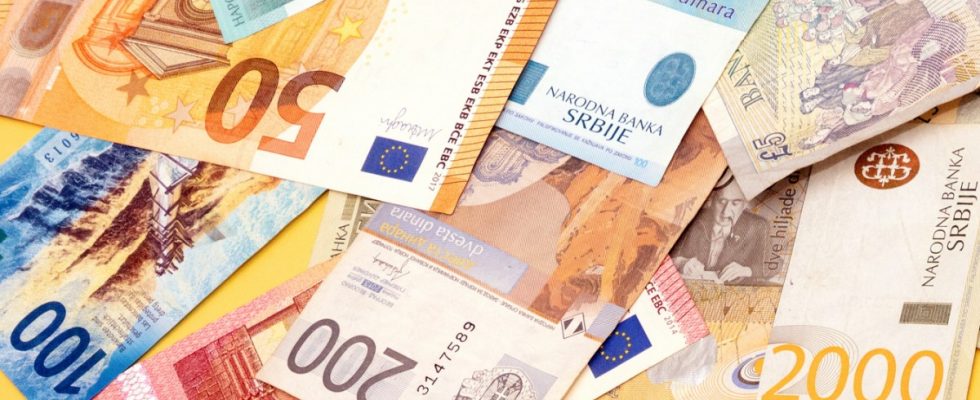As if it weren’t enough that the euro has caused a lot of frustration, disputes and crises within the EU since it was introduced a good two decades ago. Now the currency is becoming a political explosive even outside of its official scope. Namely in the Western Balkans, a region that is actually quite European, but whose countries are striving towards the hoped-for EU accession with varying degrees of intensity.
If one were to take the affinity for the euro as an indicator, then the Republic of Kosovo would currently be the most European of the six Western Balkan states. There, as in neighboring Montenegro, People have been using the euro as a means of payment since 2002 (previously they used the D-Mark). And now the Kosovo government is planning to take a small but important step further: the euro is to change from the unofficial to the regular and sole currency on February 1st. The decision, like several other recent decisions by the Kosovo government, triggered a frenzy in Brussels and Washington.
The USA and several EU countries, including Germany, fear that the currency change could make the already highly tense situation in the region even more explosive. Making the euro the sole means of payment in Kosovo means: banning other currencies – specifically the Serbian dinar. This is still the common means of payment in the north of the country, where the majority of Serbs live. Many of them receive pensions, salaries or social benefits from neighboring Serbia, whose government does not view Kosovo as an independent state but as a breakaway province of its own.
Serbia’s president calls on the EU to stop such “provocations”.
The government in Pristina has recently repeatedly demonstrated that it is no longer prepared to accept Serbia’s non-recognition of its sovereignty over Kosovo, which has been independent since 2008. It imposed an obligation to exchange Serbian license plates with Kosovar ones, and it implemented the inauguration of Albanian mayors in municipalities with a majority of Serbs – both formally legitimate steps, but each of which was followed by violent unrest, presumably fomented by the government in Belgrade.
The Srpska Lista (“Serbian List”), the nationalist party that dominates northern Kosovo and is controlled by Belgrade, has announced resistance to the introduction of the euro: it is obviously an attempt to control the Serbian population “without the use of weapons.” drive out. Serbian President Aleksandar Vučić called on the EU to stop “further provocations” from Pristina. The EU Commission, like the US government before it, has now called for a “sufficiently long transition phase” for the currency changeover. But Kosovo’s central bank has so far insisted that it is ultimately only exercising its “constitutional mandate.” Incidentally, there are enough licensed banks in the north of the country, where every citizen can open a euro account and receive payments “from any country”.

